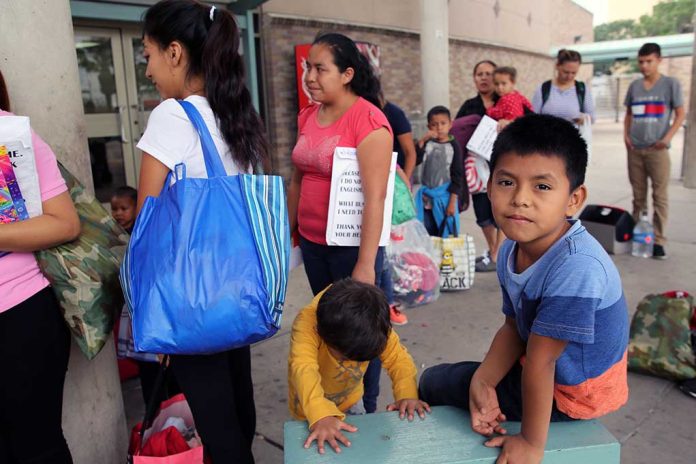
Cyprus is paying Syrian migrant families to return home while allowing wage earners to keep working on the island for three years, creating a groundbreaking solution to handle its largest asylum-seeker population.
Key Takeaways
- Cyprus’s voluntary repatriation program offers financial incentives of €2,000 per adult and €1,000 per child for Syrian families returning home
- The main income earner receives a special three-year work permit to remain in Cyprus, providing financial stability during the family’s transition
- Families must rescind asylum claims or international protection status to qualify for the program
- Applications are being accepted from June 2 to August 31, targeting the country’s largest asylum-seeker population
- The program could serve as a model for other European countries dealing with migrant resettlement challenges
A Strategic Approach to Migrant Resettlement
Cyprus has launched an innovative program addressing its migrant situation by offering Syrian families financial assistance to return home while allowing primary breadwinners to maintain employment on the island. This balanced approach represents a shift in how Western nations manage migrant populations, prioritizing both humanitarian concerns and practical realities. The program provides Syrian families with substantial financial incentives – €2,000 for each adult and €1,000 for each child – specifically designed to facilitate their voluntary return and reestablishment in Syria. Unlike typical deportation policies seen in other nations, this program aims to create sustainable resettlement options.
“Cyprus will offer Syrian families money to help them resettle back in their homeland and allow the main income earners to remain on the island nation for up to three years to work as part of a voluntary repatriation program, a Cypriot minister said Thursday,” stated a Cypriot minister.
Work Permits and Travel Flexibility
The most innovative aspect of Cyprus’s program is the three-year work permit granted to the family’s primary income earner. This provision allows the breadwinner to remain legally employed in Cyprus while their family resettles in Syria, ensuring continued financial support during the transition period. The permit holder can travel freely between Cyprus and Syria throughout the validity period, maintaining family connections while supporting their household financially. This practical approach demonstrates Cyprus’s understanding that successful repatriation requires more than just one-time payments – it needs sustainable economic foundations.
“This new program is a targeted, humanitarian and realistic policy that bolsters Syria’s post-war transition to normality,” said Nicholas Ioannides, Deputy Minister for Migration.
Conditions and Implementation Timeline
The program comes with specific conditions that reflect Cyprus’s commitment to a structured approach. Participating families must drop existing asylum claims or rescind international protection status to qualify for the benefits. This requirement ensures clear legal status for participants and prevents exploitation of multiple systems simultaneously. Applications are being accepted during a limited window from June 2 to August 31, creating urgency while allowing sufficient time for families to make informed decisions. Syrian nationals represent the largest group of asylum-seekers in Cyprus, making them the logical focus for this initiative.
A Model for Europe and National Sovereignty
Cyprus’s program stands in stark contrast to the often chaotic migrant policies seen across Europe and America. While maintaining its right to manage migration, Cyprus has developed a system that respects both its national interests and the needs of migrant families. The approach acknowledges that some level of migration control is necessary while avoiding harsh measures that disrupt families. Despite criticism from international bodies regarding its 2009 agreement with Syria concerning migrant returns, Cyprus has maintained its sovereign right to establish border policies, denying accusations of improper pushbacks.
The program potentially offers a blueprint for other European nations struggling with similar migration challenges. By creating pathways for voluntary return with dignity and economic support, Cyprus demonstrates that countries can address migration issues without abandoning either humanitarian values or national security interests. This balanced approach represents the kind of pragmatic solution that respects both sovereignty and human dignity – a model desperately needed in today’s polarized migration debates.













